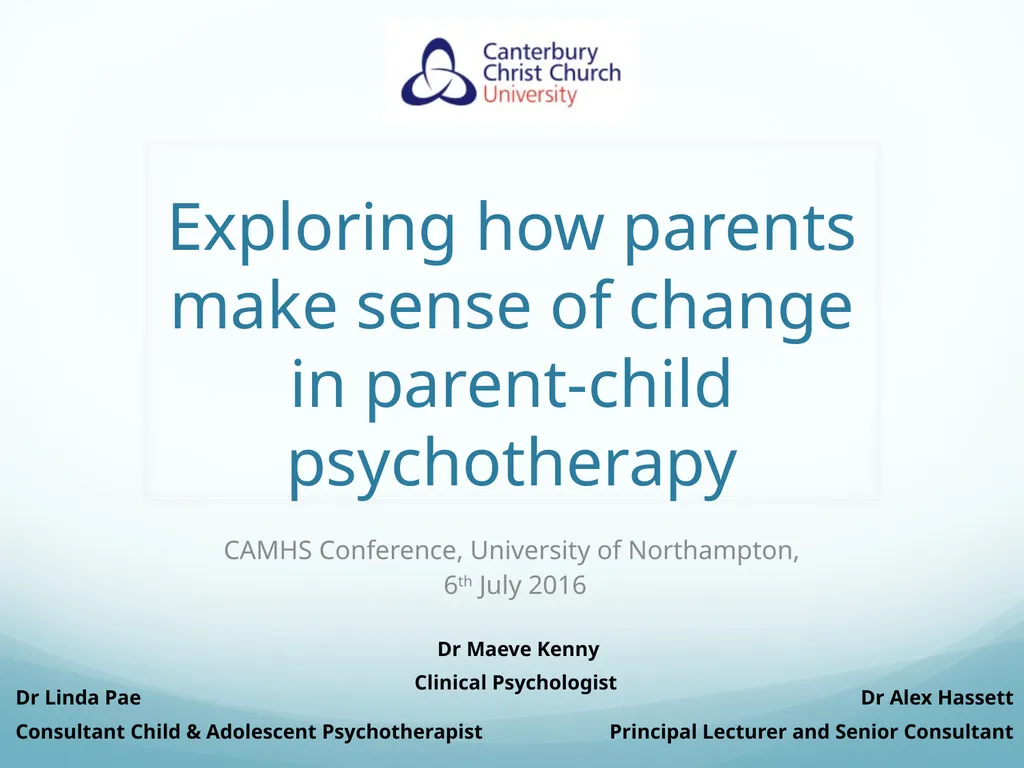
Author : min-jolicoeur | Published Date : 2025-07-16
Description: Exploring how parents make sense of change in parent-child psychotherapy CAMHS Conference, University of Northampton, 6th July 2016 Dr Maeve Kenny Clinical Psychologist Dr Alex Hassett Principal Lecturer and Senior Consultant Dr Linda PaeDownload Presentation The PPT/PDF document "" is the property of its rightful owner. Permission is granted to download and print the materials on this website for personal, non-commercial use only, and to display it on your personal computer provided you do not modify the materials and that you retain all copyright notices contained in the materials. By downloading content from our website, you accept the terms of this agreement.
Here is the link to download the presentation.
"Exploring how parents make sense of change in"The content belongs to its owner. You may download and print it for personal use, without modification, and keep all copyright notices. By downloading, you agree to these terms.













